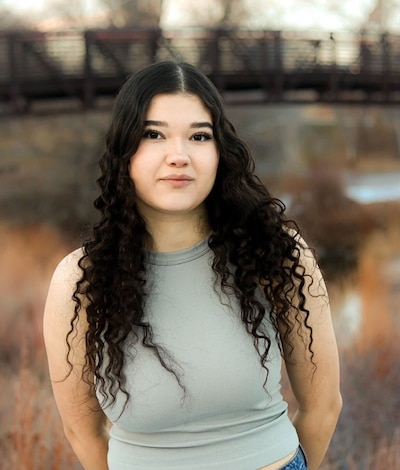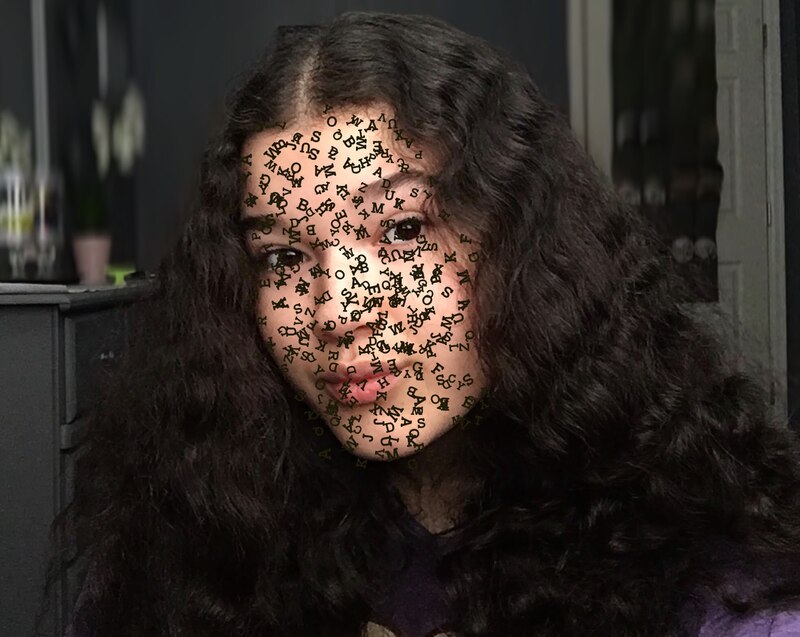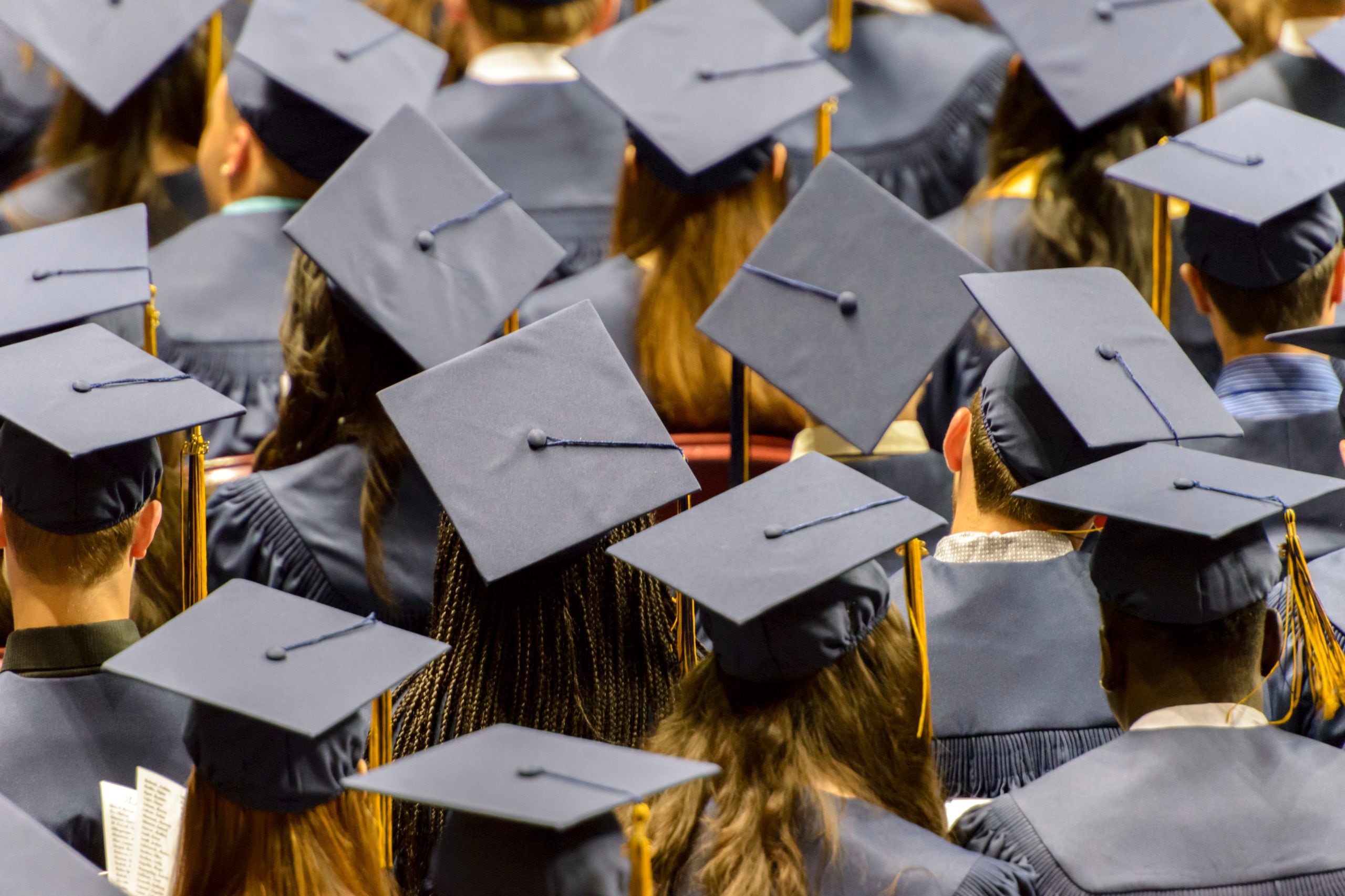About this series: Four years ago, Chalkbeat reporters documented the stories of high-school freshmen experiencing a critical year through Zoom calls and from behind masks. These students, who experienced freshman year at a distance, are now graduating seniors. How did the pandemic shape their high school lives? How did their expectations for these formative four years play out? We caught up with these members of the Class of 2024 to find out.
Casandra Sotelo-Rivera was trying her best to savor her last few weeks of high school in Denver. It’s a lesson she said she learned during the long days of online learning.
“For me, a good thing that came from it was to appreciate the time that I’m given,” Sotelo-Rivera said during a recent lunch period at Dr. Martin Luther King, Jr. Early College.
“When COVID happened, no one was expecting it to drag out for as long as it did. So when it did, your whole life was put on pause.”

Sotelo-Rivera was a shy ninth grader in the 2020-21 school year, part of a cohort of millions of American students who spent a critical year of their lives in remote learning. She’s grown into an engaged member of her school community.
After graduation, she’s headed to Colorado State University in Fort Collins, the first person in her family to leave home for college. As she prepares to walk across the graduation stage, she said she carries with her a number of pandemic lessons that shaped her as a student and a person.
Sotelo-Rivera thrived in remote learning in some ways. Participating in class discussions was easier as an avatar on a video call or a name in the chat box than it had been as an in-person student whose classmates’ heads would swivel toward her when she spoke. The technological anonymity allowed her to take academic and creative risks.
It also taught her the importance of advocating for herself.
“In online learning, it was the first time I didn’t have someone sitting there and walking me through everything,” the 18-year-old said. “It taught me how to teach myself. Also because we weren’t in person, it taught me the importance of communicating and reaching out to my teachers if I needed something. And that’s something I was not good at before.”
But there were downsides, too. When school buildings shut down in the spring of her 8th grade year, Sotelo-Rivera said she stopped talking to many of her friends.
“They said, ‘I thought you were mad at us,’” she recalled. “I would go hours or days without talking to them. I was so caught up in my own world.”

Although her school building reopened in the second semester of her ninth grade year, Sotelo-Rivera chose to stay online. She didn’t step foot inside a classroom until 10th grade — and even then, students were required to wear masks and social distance. As the school year progressed and the COVID restrictions eased, Sotelo-Rivera said “it was the first time seeing some of these kids’ faces, and it was weird trying to get used to it.”
“Honestly the one thing I struggled with balancing was trying to do all my extracurriculars and manage my friendships while maintaining good grades,” she said. “I had to get used to seeing my friends every day. … It’s something you didn’t know you missed until you had it again.”
Sotelo-Rivera is a student ambassador on her school’s staff governing board, which she said discusses issues ranging from recent building renovations to how to increase student attendance. She’s also on the senior planning committee, which helped plan her school’s prom at the Denver Aquarium and an end-of-year senior BBQ.
Because she’s a student leader, Sotelo-Rivera said a school counselor approached her about starting a food and clothing bank. Her school, like many in Denver, has enrolled an influx of new students from South America this year. Now, on Tuesdays and Wednesdays, students and families in need can take home donated food and clothing, she said.
Sotelo-Rivera also helps lead the outdoor club, which works with a Denver-based nonprofit to take students on excursions such as hiking and rock climbing. Her favorite trip was to the National Eagle Repository in Commerce City, which distributes eagle feathers to Native American tribes to use for religious and cultural purposes.
She plans to major in fish, wildlife, and conservation biology at Colorado State University next year. A TikTok she saw of a wildlife biologist conducting a research project on gorillas helped inspire her, she said. Her older sister did two years of college, but Sotelo-Rivera will be the first in her family to attend a four-year university and live on a campus more than an hour away.
To help ease the transition, Sotelo-Rivera is set to participate in a summer program for first-generation students. She’ll live in a dorm, take classes, and attend mandatory study halls. Her move-in date is June 9, just 10 days after her high school graduation.
“Honestly, as much as I’m scared, I know it’s the right thing to do,” she said.
Although Sotelo-Rivera said she’d still describe herself as a bit shy, her confidence has grown in the four years since she was a freshman who always kept her camera off during class.
“I see a difference in my mentality: If no one else is going to do it, you’ll be the one to do it.”
Melanie Asmar is the bureau chief for Chalkbeat Colorado. Contact Melanie at masmar@chalkbeat.org.







